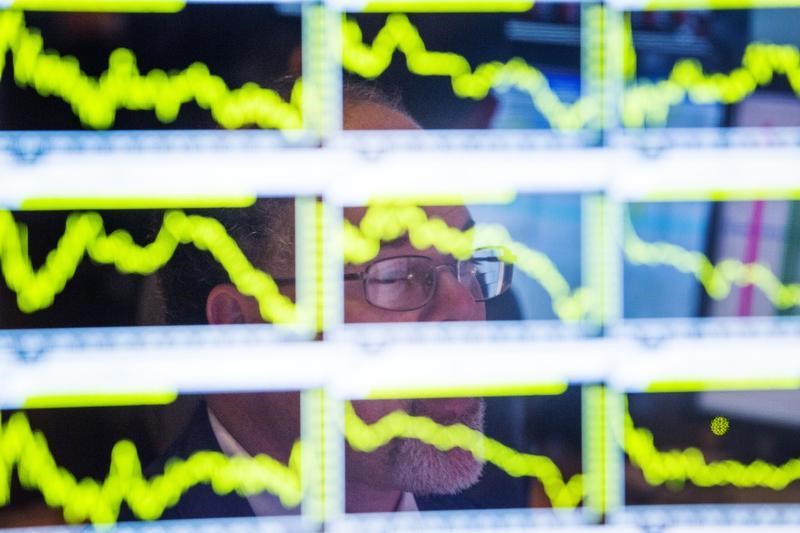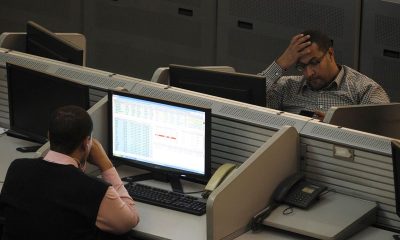Investing
U.S. sanctions authority probes Raiffeisen on Russia

© Reuters. FILE PHOTO: Cars drive past a branch of Raiffeisen Bank in Moscow, Russia, February 11, 2023. REUTERS/Tatyana Makeyeva
(Corrects spelling of ‘an’ in first paragraph)
By John O’Donnell, Francesco Canepa and Alexandra Schwarz-Goerlich
FRANKFURT/VIENNA (Reuters) – The United States’ sanctions authority has launched an inquiry into Raiffeisen Bank International over its business related to Russia, increasing scrutiny of the Austrian lender that plays a critical role in the Russian economy.
Responding to questions from Reuters, the bank said it had received a request from the U.S. Treasury Department’s Office of Foreign Assets Control (OFAC) in January to “clarify payments business and related processes maintained by RBI in light of the recent developments related to Russia and Ukraine.”
OFAC had asked Raiffeisen for details of its exposure in Russia, the partially occupied Donbas, Ukraine and Syria, including about the transactions and activity of certain clients, a source told Reuters.
The U.S. agency had requested a reply by February, said that person, adding that Raiffeisen’s lawyers negotiated an extension, pledging to answer the questions in three tranches of information to be sent to in early April, May and June.
A spokesperson for U.S. Treasury Department declined to comment.
Raiffeisen told Reuters in a statement that it was cooperating fully with OFAC and that it understood the request was not triggered by a specific transaction or business. It said it had processes in place to ensure compliance with sanctions.
A spokesperson said it was “confident that the information provided to OFAC will satisfy their request”, adding that the questions posed were of a ‘general nature’.
Raiffeisen has not been sanctioned in the past, but the January information request is worrying European financial regulators responsible for oversight of the bank because of the potential that it could ultimately lead to penalties against Raiffeisen, said two people with direct knowledge of the matter.
Raiffeisen is deeply embedded in the Russian financial system and is one of the only two foreign banks on the Russian central bank’s list of 13 “systemically important credit institutions”, underscoring its importance to Russia’s economy, which is grappling with sweeping Western sanctions.
As Austria’s second-biggest lender, it also underpins much of that nation’s economy as well as having extensive operations in eastern Europe. An Austrian official said that Austrian authorities were monitoring the situation at Raiffeisen and its business in Russia closely because of the bank’s importance.
Almost a year since Moscow launched what it calls a “special military operation” in Ukraine, Raiffeisen is among a handful of European banks that remain in Russia.
But it has faced criticism, including from investors over its decision to keeping doing business with Moscow. The bank has previously defended its position, saying its exposure to Russia is contained.
Raiffeisen made a net profit of roughly 3.8 billion euros last year, thanks in large part to a 2 billion euro plus profit from its Russia business. Meanwhile, Russian savers have lodged more than 20 billion euros with the bank.
U.S. CLOUT
The U.S. Treasury imposes sanctions and can penalise those who break them. Its most aggressive sanctioning tool freezes U.S. assets and excludes banks from accessing U.S. dollars – critical for international trade and finance.
The toughest sanctioning tool in OFAC’s arsenal, known as the SDN list, freezes assets held in the United States and bars American companies or citizens from trading with those listed, freezing a bank or individual out of all dollar payments.
This grants the United States influence far beyond its shores to enforce its sanctions. Alternatively, OFAC can also resort to less stringent measures such as levying fines and sending warning letters over sanctions violations.
Two former U.S. officials, asking not to be named, said, however, that Washington was typically reluctant to take such draconian steps.
Viktor Winkler, a German sanctions lawyer, declined to make specific remarks about Raiffeisen, but said that it was common for OFAC to request information of banks and that it did not automatically lead to penalties.
OFAC has sanctioned five major Russian banks, including state-backed Sberbank part of a response to that country’s invasion of Ukraine, as well as wealthy oligarchs.
Shortly after Russia’s invasion of Ukraine, the United States cut off Sberbank from processing payments through the U.S. financial system. Its European arm, based in Vienna, was closed shortly afterwards.
Sberbank previously said the new sanctions would not have a significant impact on their operations.
In 2018, the U.S. Treasury sanctioned Latvia’s ABLV Bank, due to concerns about illicit activity connected in large part to Russia, prompting the bank to quickly unravel.
Johann Strobl, Raiffeisen’s CEO, told shareholders in March that he is examining options for the Russian business, but reaching a conclusion would take some time because the bank is not “a sausage stand” that could be closed overnight.
Read the full article here

-

 Passive Income5 days ago
Passive Income5 days agoThe One Microsoft Design Tool Business Owners Shouldn’t Miss
-

 Side Hustles3 days ago
Side Hustles3 days agoThe DOJ Reportedly Wants Google to Sell Its Chrome Browser
-

 Side Hustles6 days ago
Side Hustles6 days agoHoliday Savings: Get a MacBook Air for $250
-

 Investing4 days ago
Investing4 days agoThis Founder Turned a Hangover Cure into Millions
-

 Side Hustles3 days ago
Side Hustles3 days agoHow to Create a Unique Value Proposition (With Tips & Examples)
-

 Investing5 days ago
Investing5 days agoYour Firsthand Experiences Shape the Way You Run Your Business — Here’s How Mine Shaped Me
-

 Make Money7 days ago
Make Money7 days ago7 Common Retirement Planning Mistakes and How to Avoid Them
-

 Investing7 days ago
Investing7 days agoArchegos’ Bill Hwang deserves 21 years in prison, US says By Reuters


















